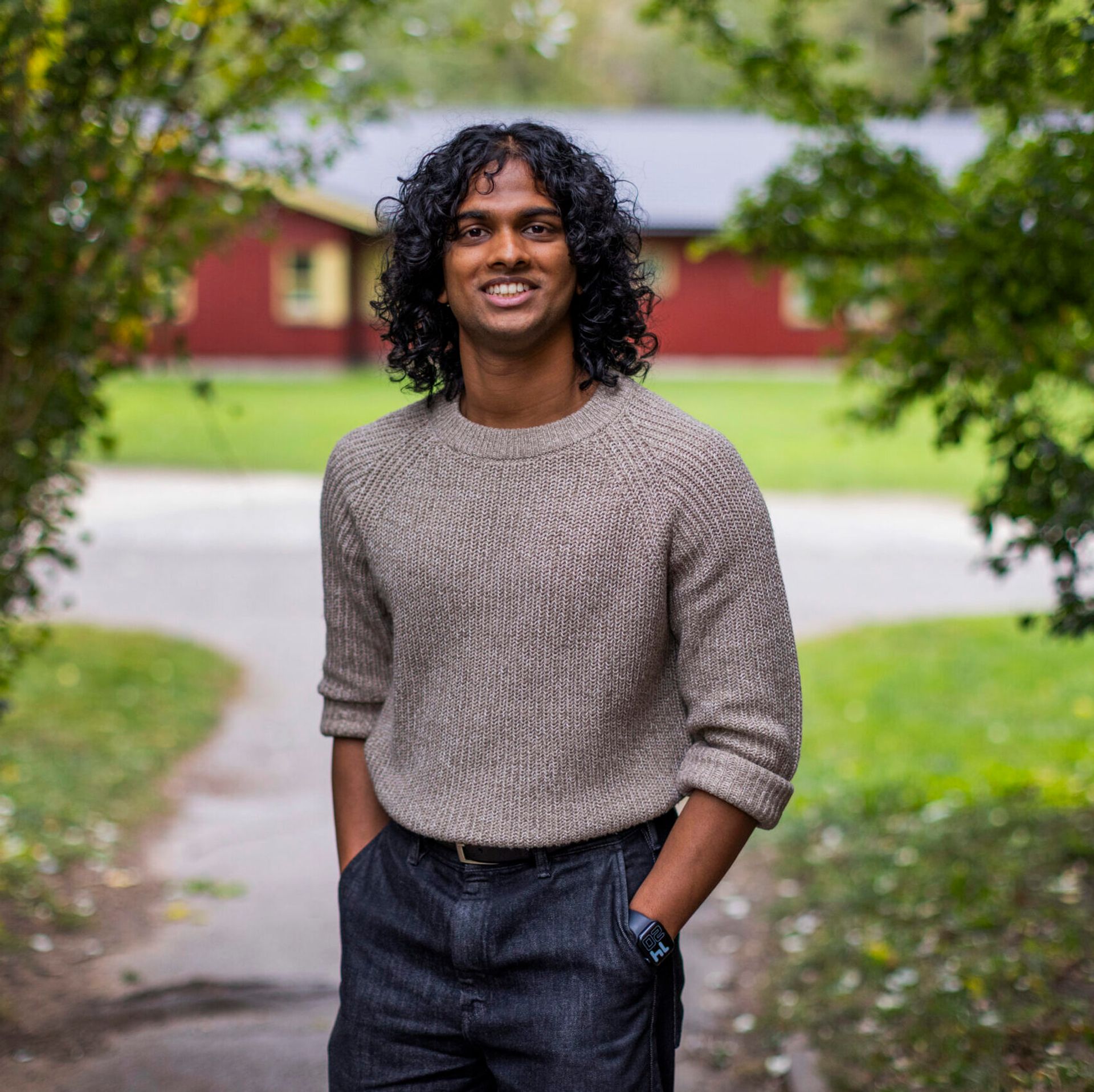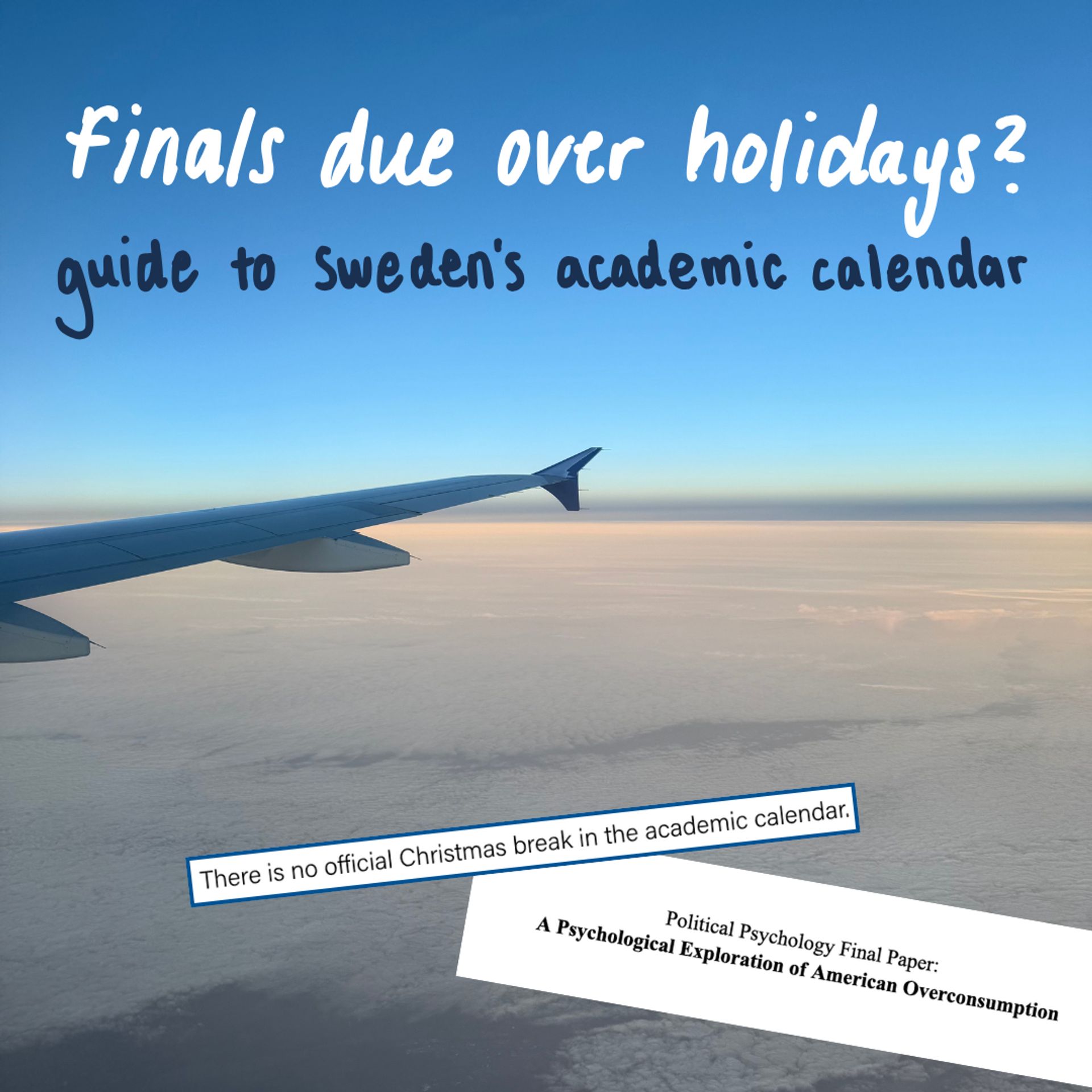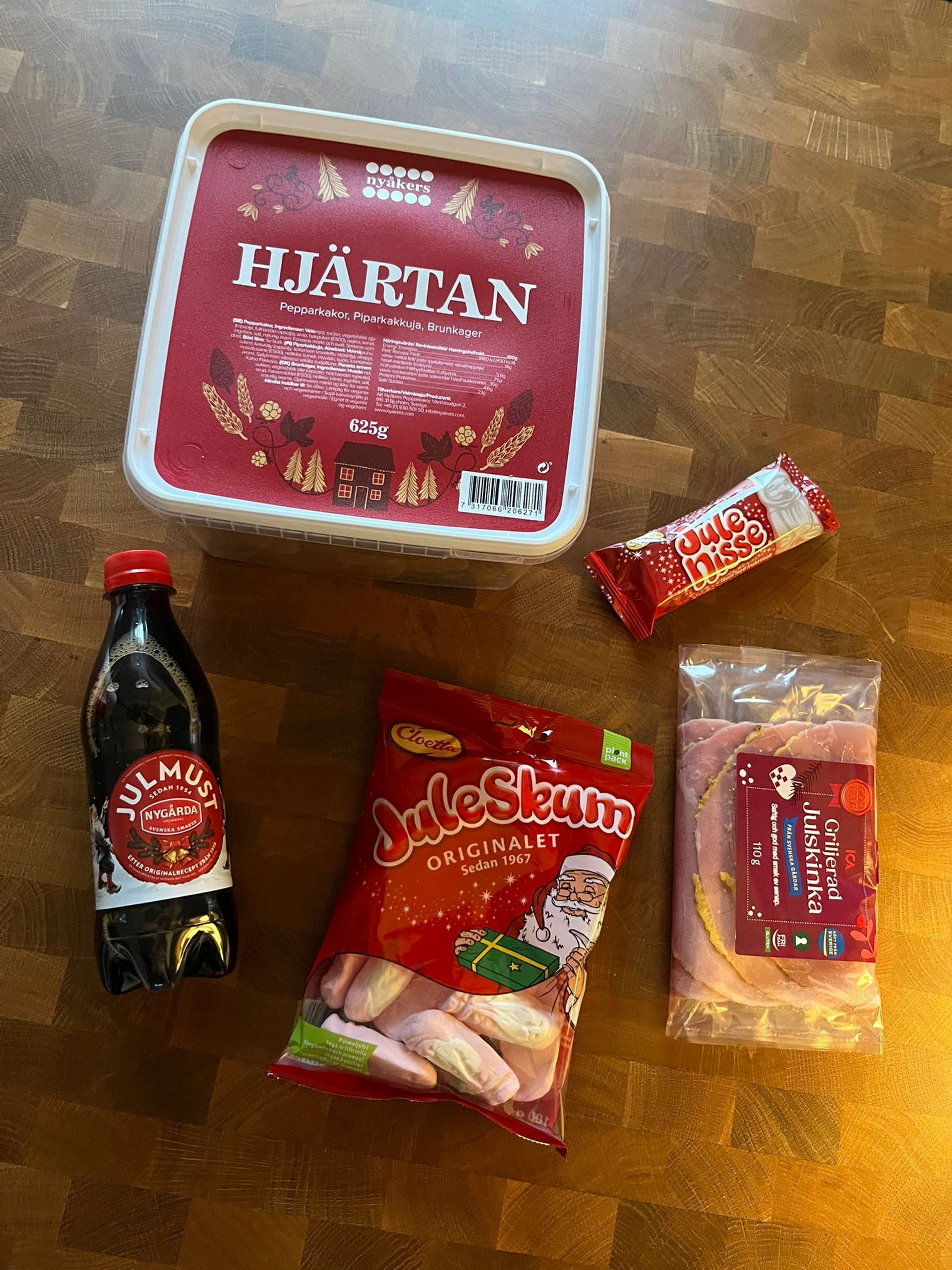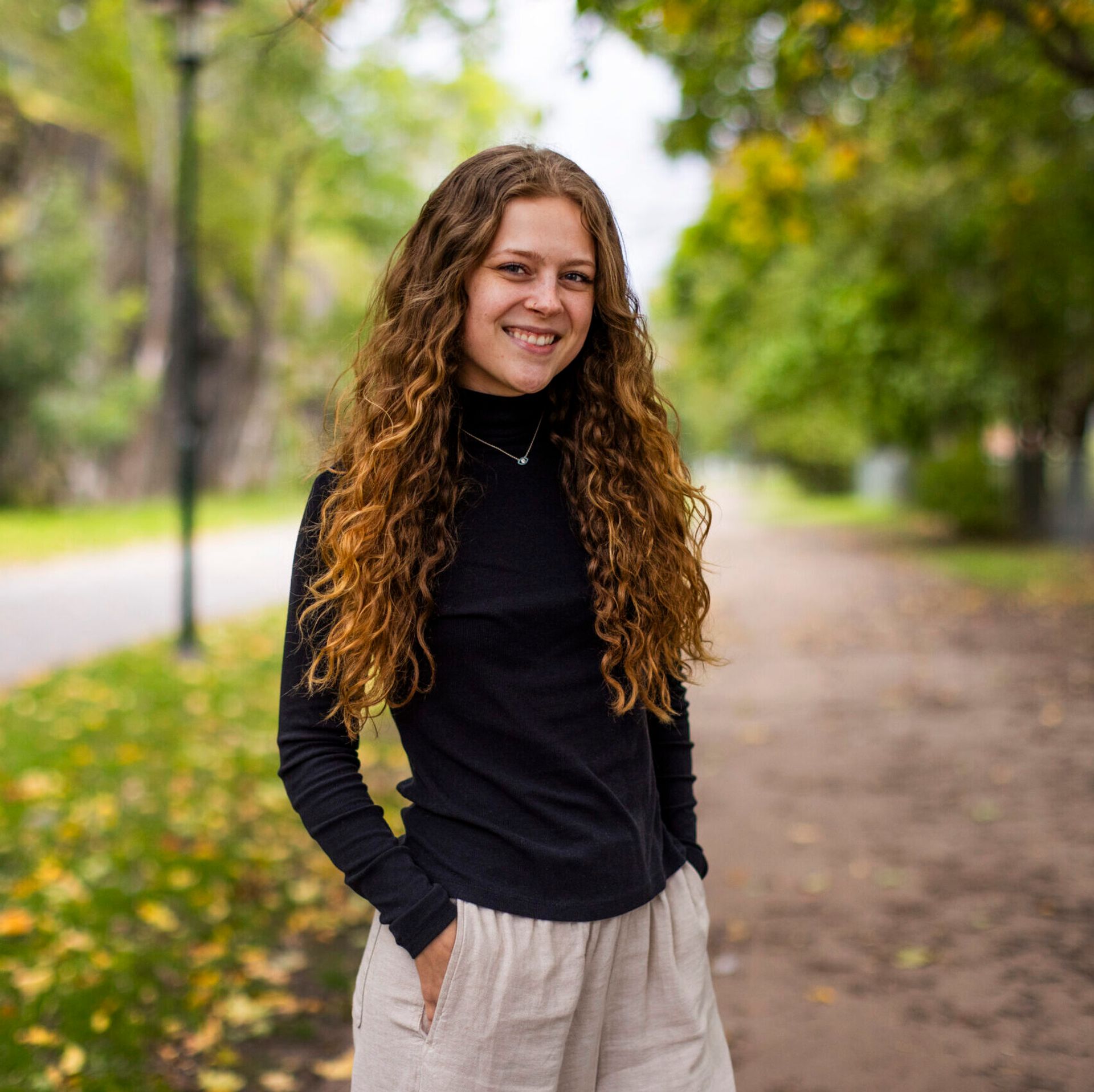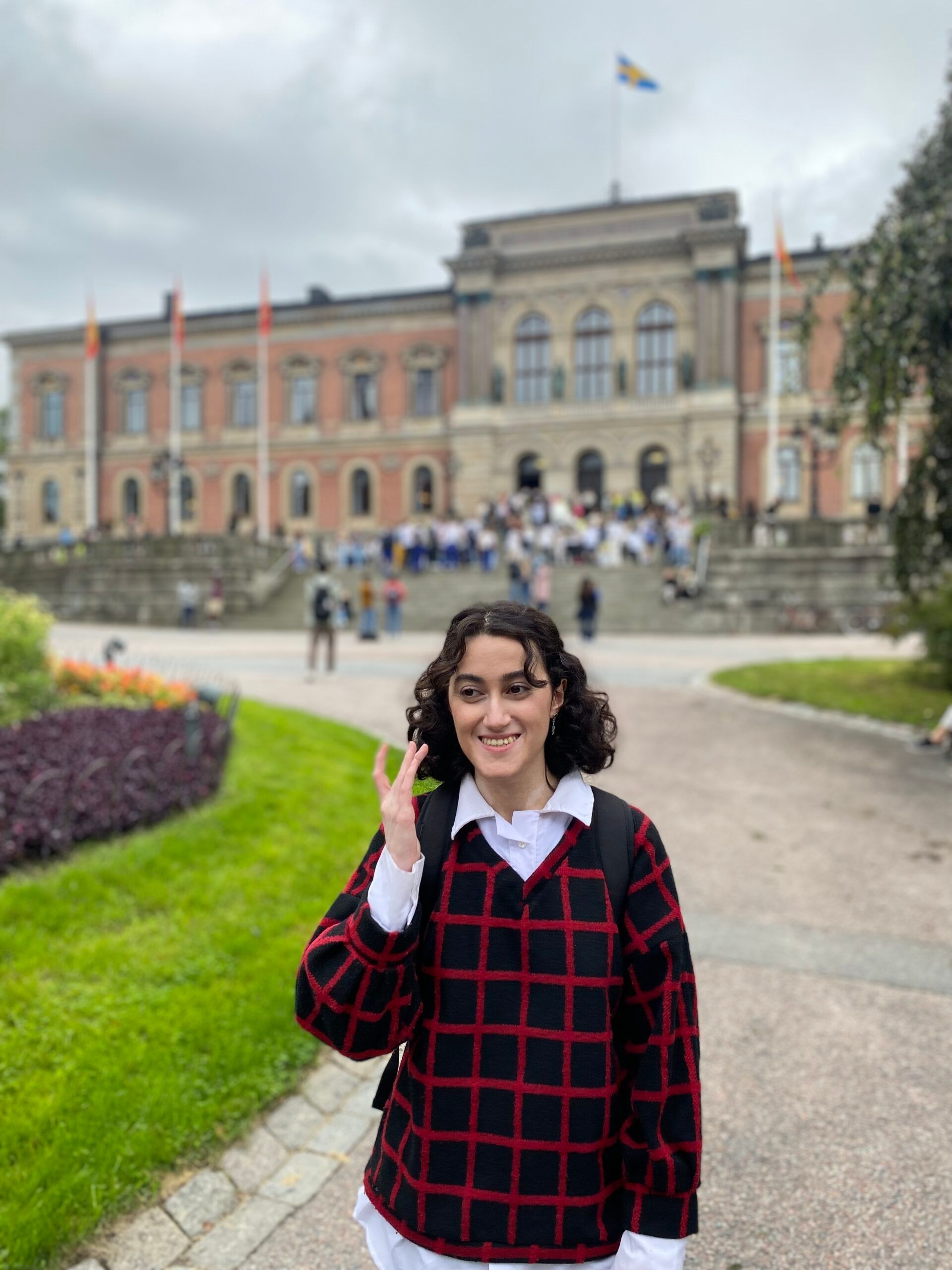
Written by Ravindu
01 Feb 2025
During my Christmas break last year, I took the chance to travel around Sweden and visit some friends in different parts of the country. One of the stops on my journey was Uppsala—a city that immediately left me enchanted with its charming blend of old-world history and modern vibrance. Though my stay was brief, Uppsala had a way of making a lasting impression.
Coincidentally, Arina, one of our fellow digital ambassadors from the Instagram team, also calls Uppsala home. She’s currently pursuing her master’s in Computer Science at Uppsala University, so I figured, who better to give me the inside scoop on what life in Uppsala is really like? I reached out to her, virtually of course, and we had a lovely conversation that gave me some great insights into her experiences, and I wanted to share that with you!
To guide the conversation, I focused on these key areas:
- Academic life: What studying in Uppsala is like.
- Climate: How the local weather shapes daily life.
- Student culture: Socializing, traditions, and building connections.
- Things you love: Highlights of living and studying in Uppsala.
- Things you would change: Challenges and room for improvement.
- Advice for upcoming students: Tips for those considering Uppsala as their next destination.
Q: Hi Arina! Would you like to introduce yourself to our readers?
“Hi, I’m Arina! I’m from Iran and I’m a Masters student at Uppsala University, where I study Computer Science.”

Uppsala is Sweden’s fourth-largest city and is just a quick 40-minute train ride from Stockholm, making it super convenient to get to the capital while still enjoying a smaller city vibe. It’s famous for being home to Uppsala University, the oldest university in Sweden, founded way back in 1477. Because of that, Uppsala is often seen as a student city, and you can definitely feel the academic energy here. “It’s a student city, but also not really-” there’s a pretty large population, so it feels like a “real” city too, with families and professionals adding to the mix. With its rich history, student traditions, and lively community, Uppsala strikes this nice balance that makes it feel both cozy and dynamic. It is also one of the most popular choices within international students applying for studies.
Arina has lived in Sweden, specifically in Uppsala, for almost 2 years now. She has just recently started her master’s thesis work, also at Uppsala, and she mentioned how she now gets access to a lot of new cool rooms at the university to work on her thesis. Fun stuff!
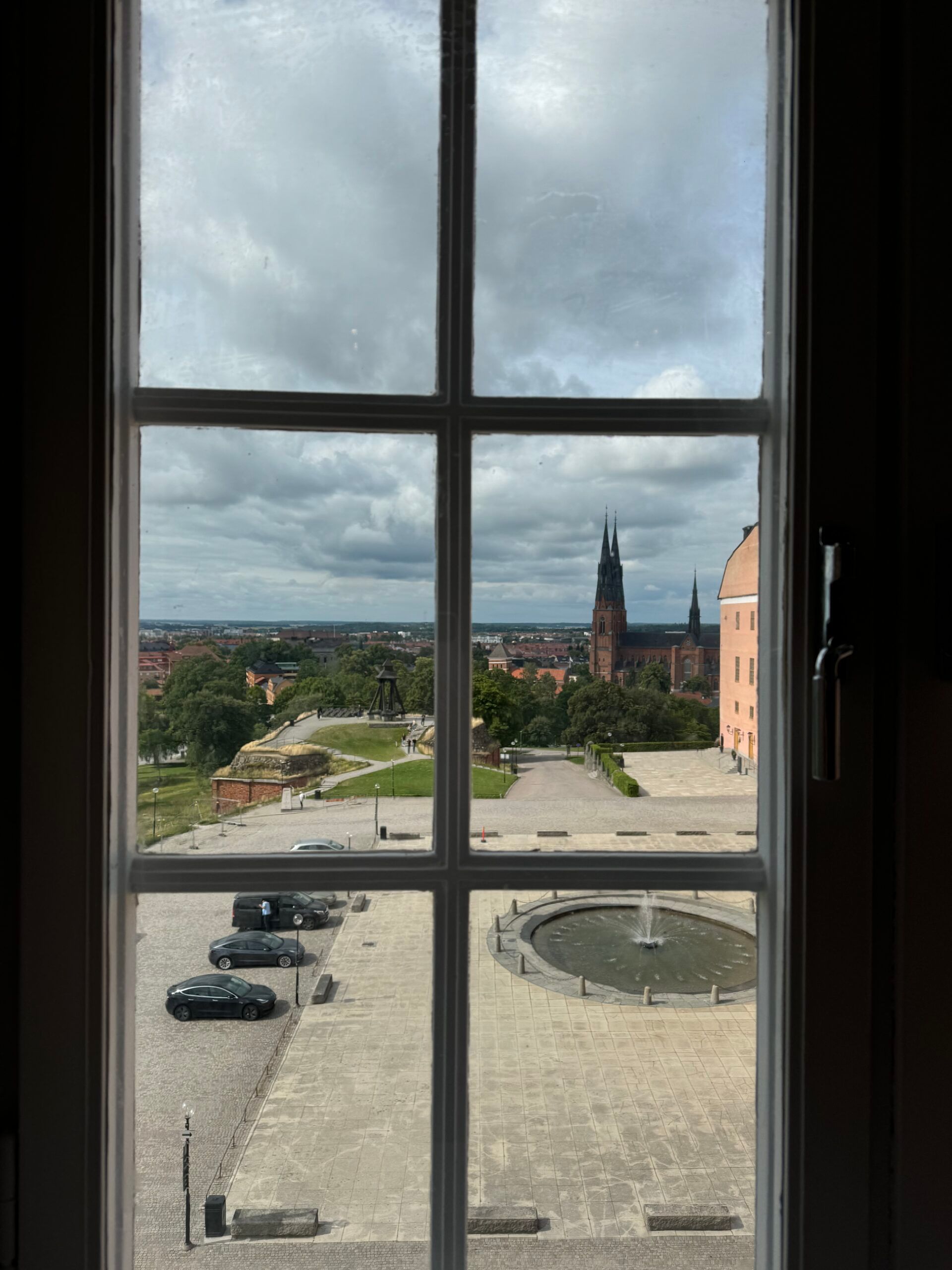
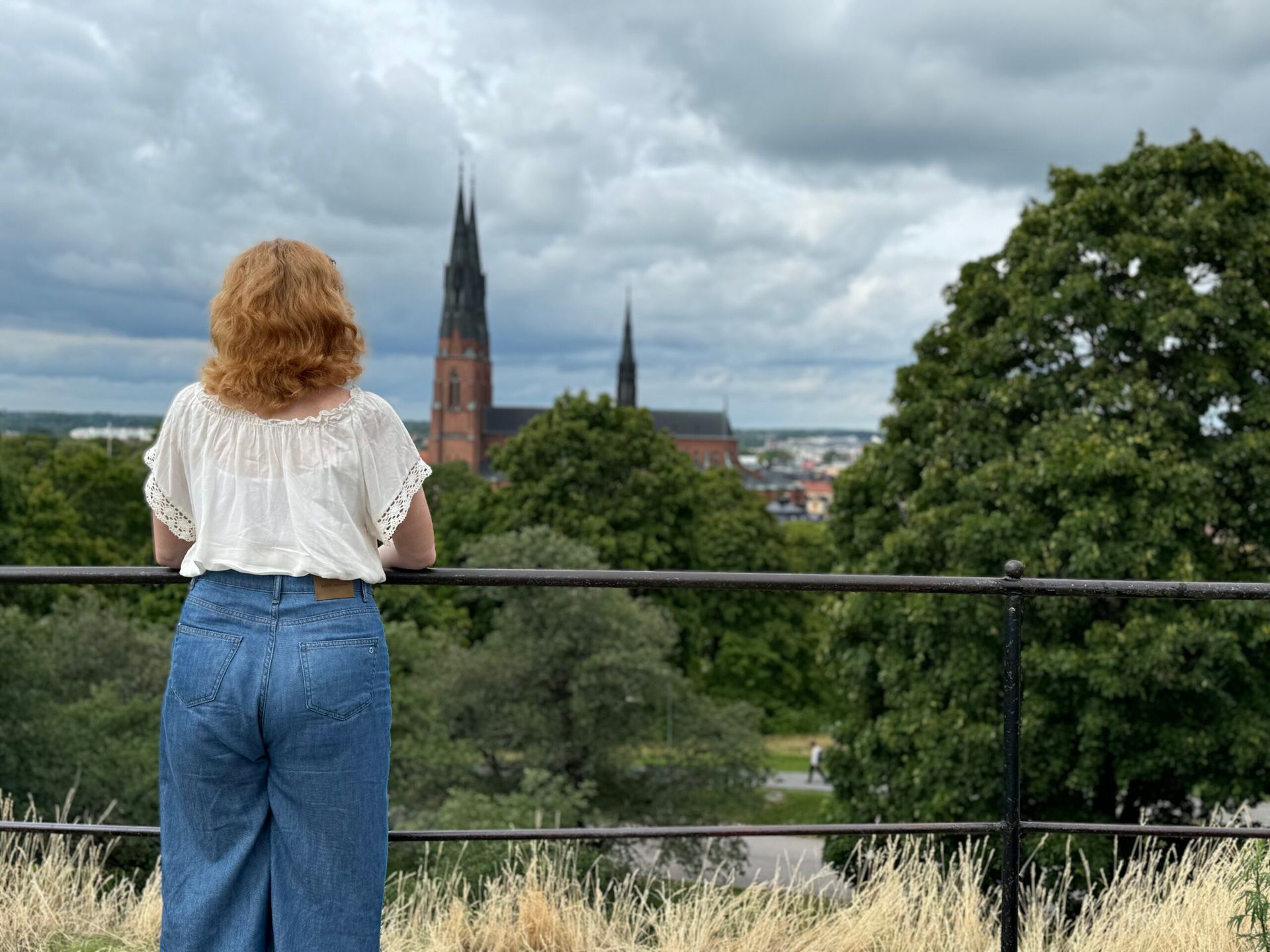
Q: I know one of the things that Uppsala University is famous for are the Student Nations. Can you tell me more about them?
Arina took me through what these Student Nations are. They are basically student organizations that offer a sense of community and host events around the city. Each Nation has its own vibe and traditions, and is not segregated based on student’s majors, so there’s something for everyone, whether you’re into club nights, pub quizzes, or cultural events. What’s also super practical, according to Arina, is that being a member of a Nation gives you access to specific set of student accommodations, which is a major reason many students sign up.
Arina also mentioned how Nations are more than just a social hub—they’re also a place where students can find part-time jobs, like helping out at events or working as bartenders, which adds to their appeal. Interestingly, during my conversation with Dalaa from Lund University (where they also have Nations), she shared similar insights. A lot of students there also join for the housing and job opportunities, alongside the exclusive events and the tight-knit community.
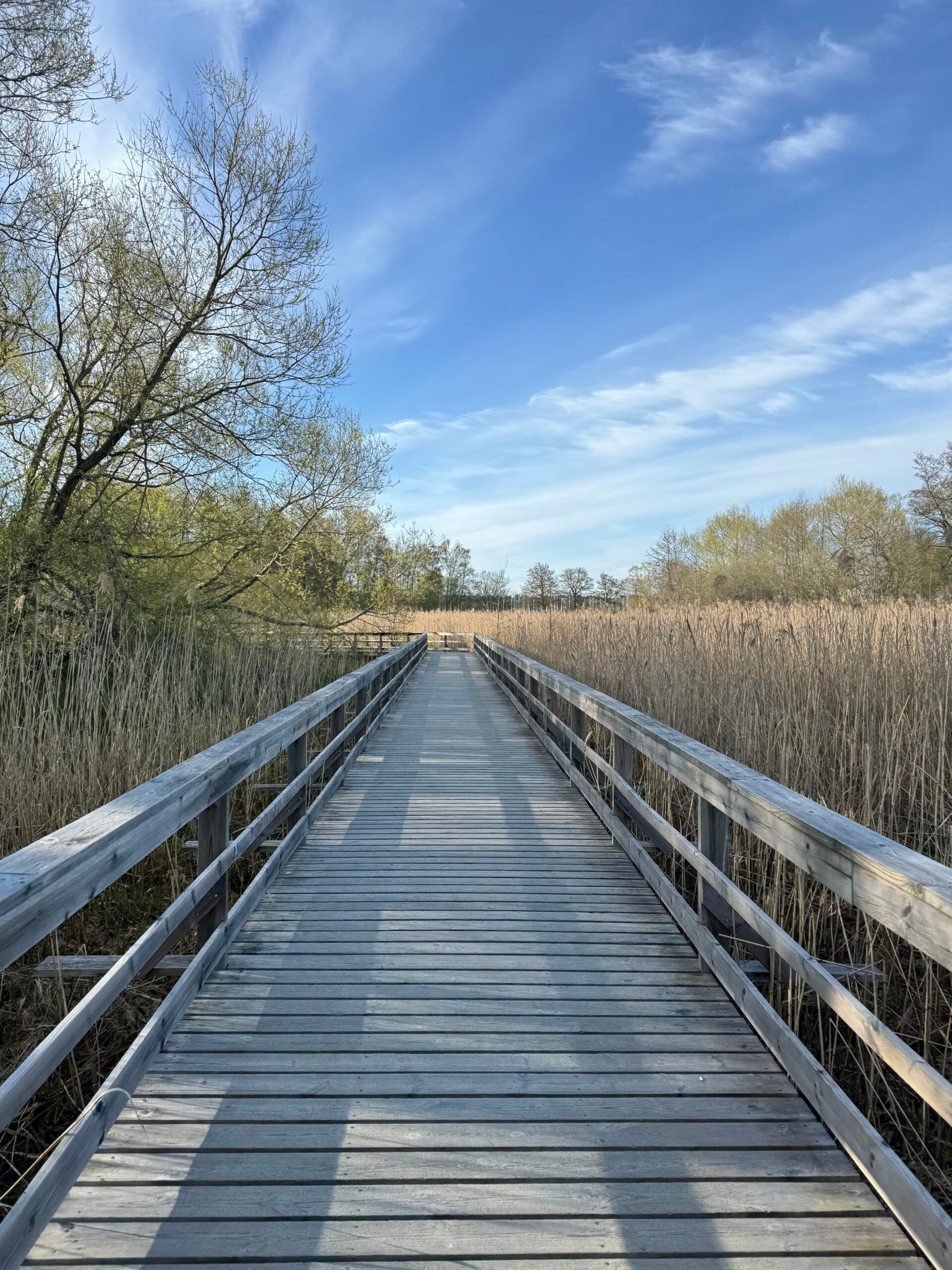
I asked Arina if Uppsala University also has a Student Union in addition to Nations, since my university, the University of Skövde, doesn’t have student Nations. “Yes! They are unions and also sections there with their overalls and their events,” said Arina, smiling. The biggest difference between the Student sections and Nations seems to be that the section membership is based on which major your study, whereas when joining a Nation, they don’t consider which area of studies you do. But they both focus on improving the extracurricular aspects of the student life.
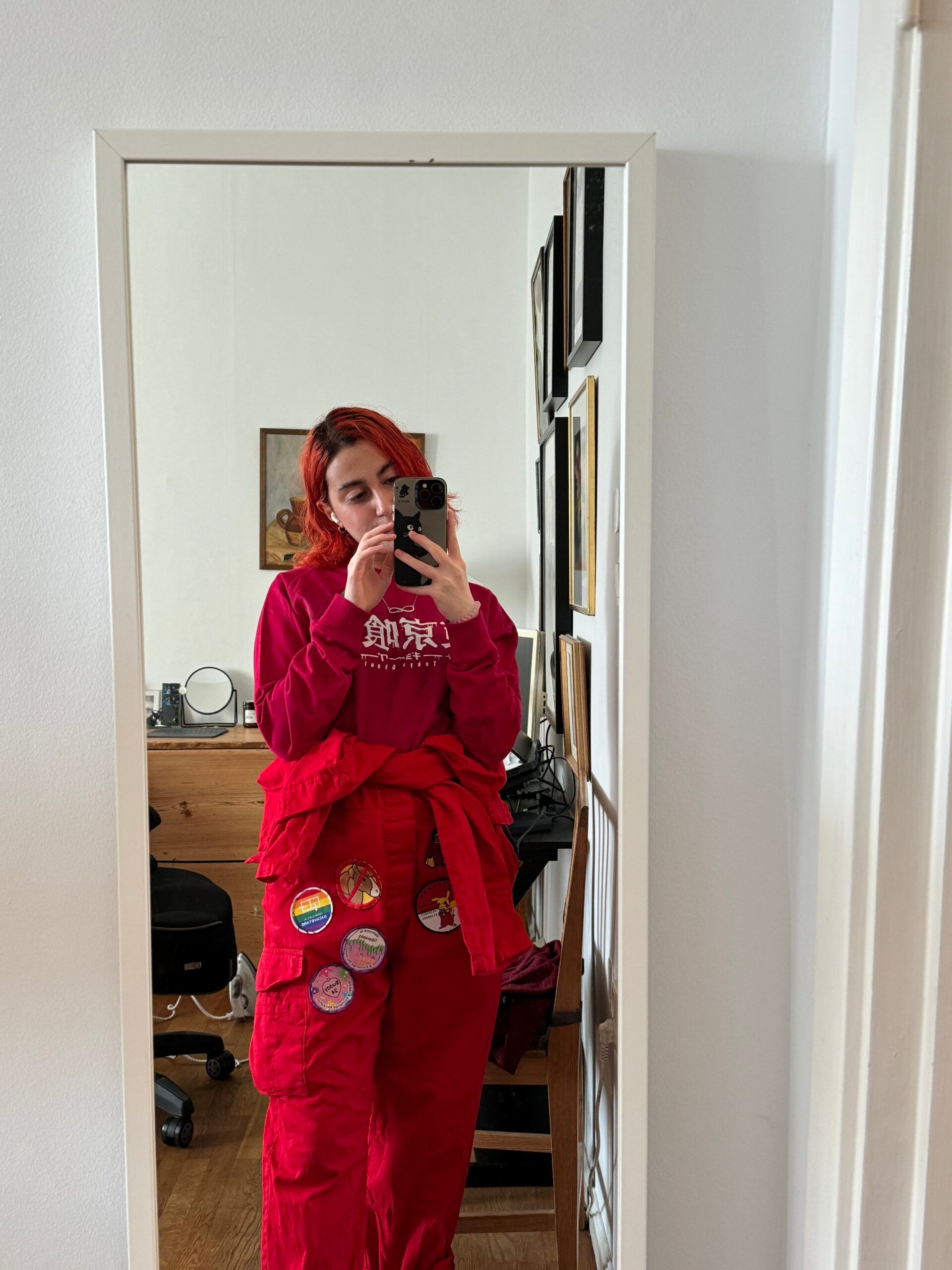
Q: What’s it like living in a large city so close to the capital Stockholm?
Arina mentioned that it’s great and that she really believes it is a best place to come to study as a student, not only due to its proximity to Stockholm, but also because of the University’s prestigious reputation.
Uppsala is a big city with a lot to offer, and as Arina says, “you have almost everything you need here.” There’s a good mix of modern and historic vibes—if you like a more urban, modern feel, the city center has plenty of shops, restaurants, and activities. In fact, Uppsala university operates across eleven distinct campus areas, each comprising multiple buildings dedicated to various disciplines, which gives you an idea of how large the city is. Arina says that it’s totally possible for students from different campus areas to never meet each other.
On the other hand, if you’re into old-timey architecture and a slower pace, places like Gamla Uppsala give you a glimpse into the city’s rich history. On my trip to Uppsala during the Christmas break, I visited Gamla Uppsala during night, and I was enchanted by the atmosphere there.
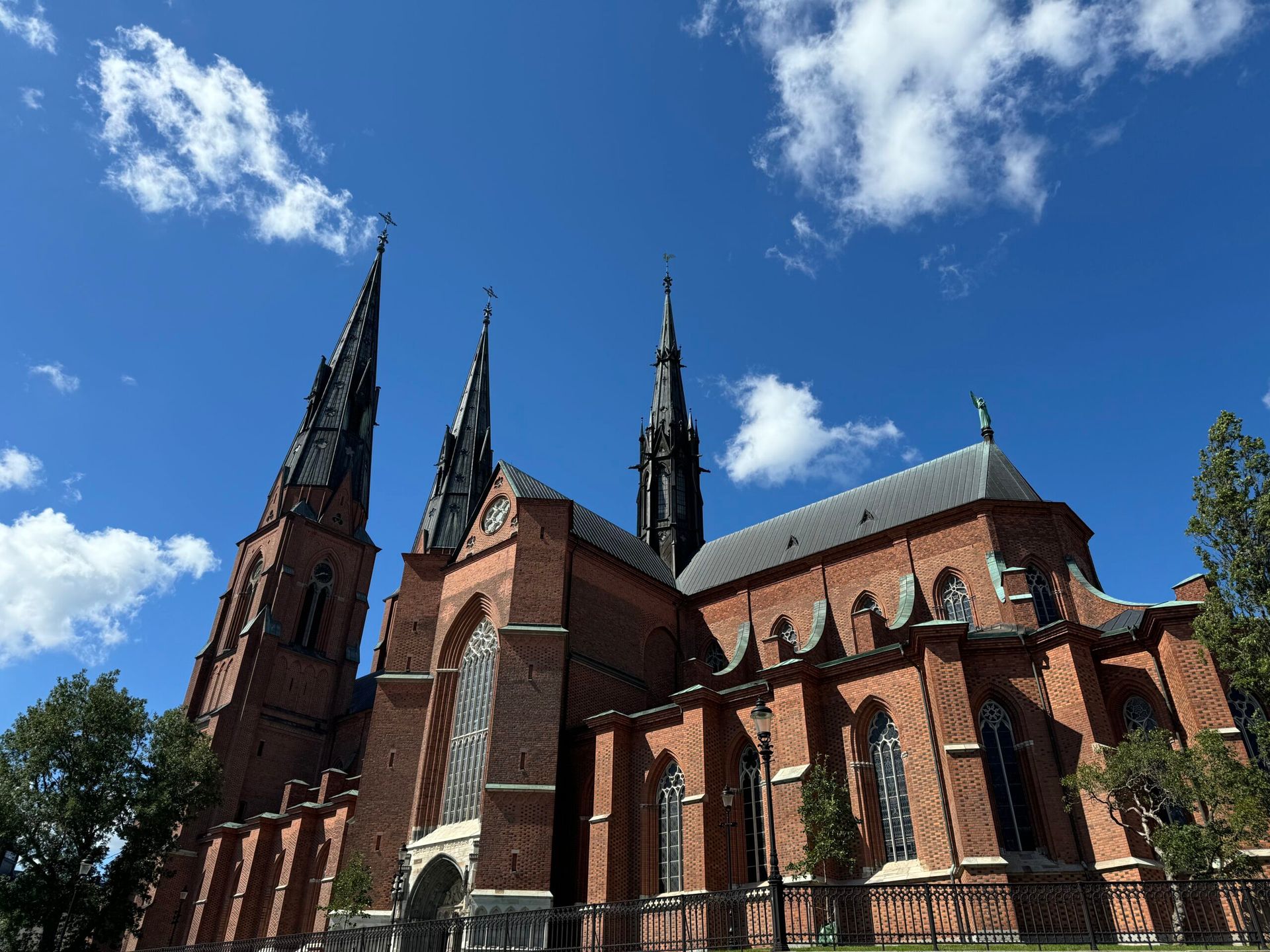
Another big plus is how close Uppsala is to Stockholm. It takes just 40 minutes by train, and tickets can be cheap, sometimes under 100 SEK. Arina explained that you could easily take a train from Uppsala Central to Stockholm central, but also with a single ticket from the UL app, the city’s main transport operator. This way you can also get you to Stockholm for cheaper, although the journey is much longer, taking around 1:30 hours. Arina says this close proximity to Stockholm makes a big difference in her daily life, especially when she wants that bigger city experience, like going to a Taylor Swift concert, of whom she is a big fan of!
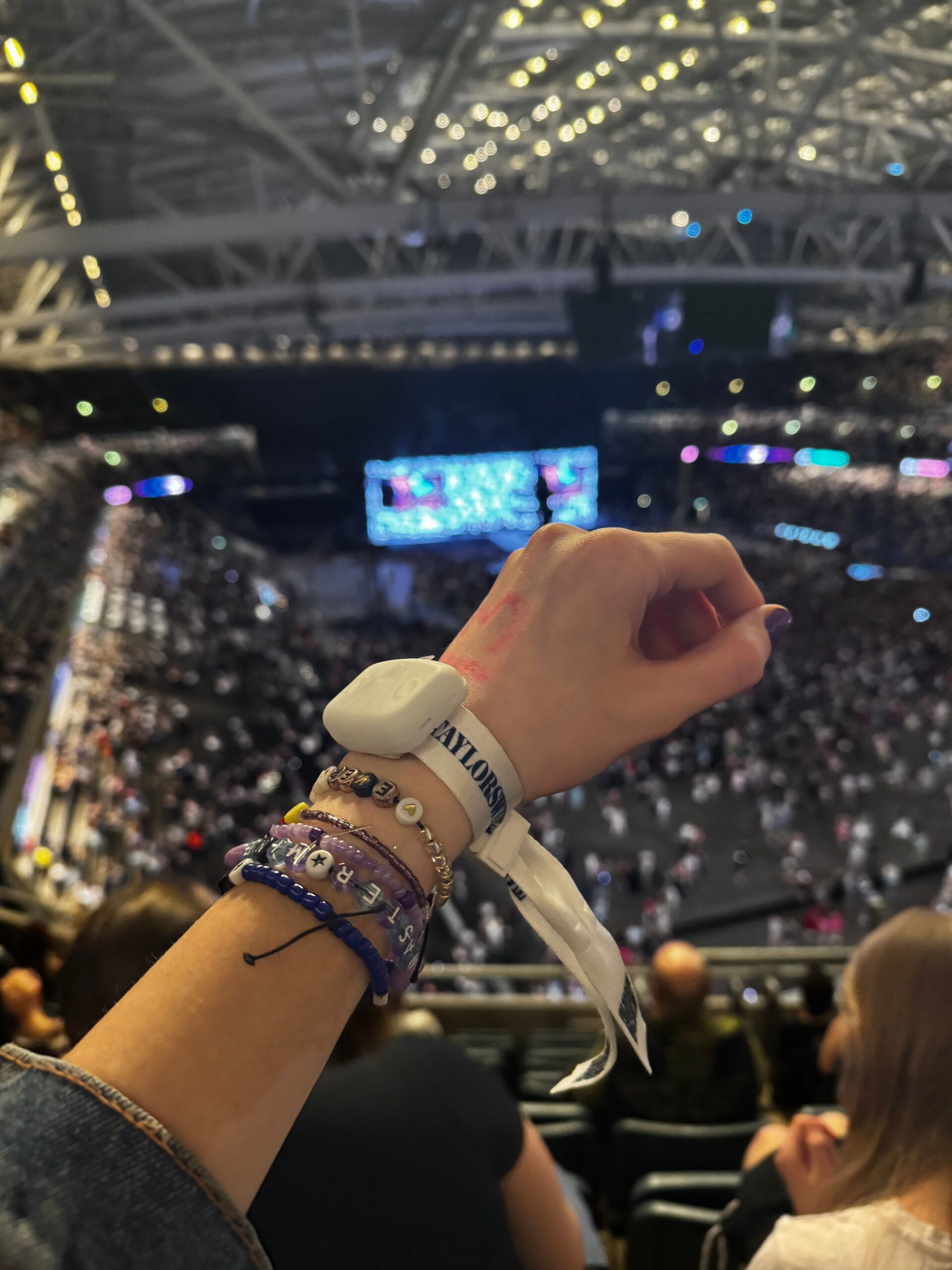
What really sets Uppsala up is its academic prestige. The city regularly hosts conferences and lectures, often featuring Nobel laureates. In fact, Uppsala University has produced several Nobel Prize winners, and there’s even a dedicated section in one of the university buildings showcasing their portraits.
Q: Uppsala is geographically situated pretty much at the center of Sweden when looking vertically, so I feel like it’s a good city to experience the four seasons distinctively. Would you agree?
“yeah!” Arina agreed that it’s a fantastic place to really experience all four seasons in Sweden. “My favorite season is autumn,” she said, though she also admitted it’s unfortunately the shortest of them all. During winter, temperatures in Uppsala typically range between -5°C to -10°C, though it can get colder at times. Summers, on the other hand, are mild and pleasant, with temperatures usually hovering around 20°C to 25°C on warmer days. Arina mentioned that “it didn’t snow that much this year,” which seems to be a trend, as other students I’ve spoken to also noticed fluctuations in snowfall over the years. Apparently, last year was much snowier, which just goes to show how varied winters can be here.
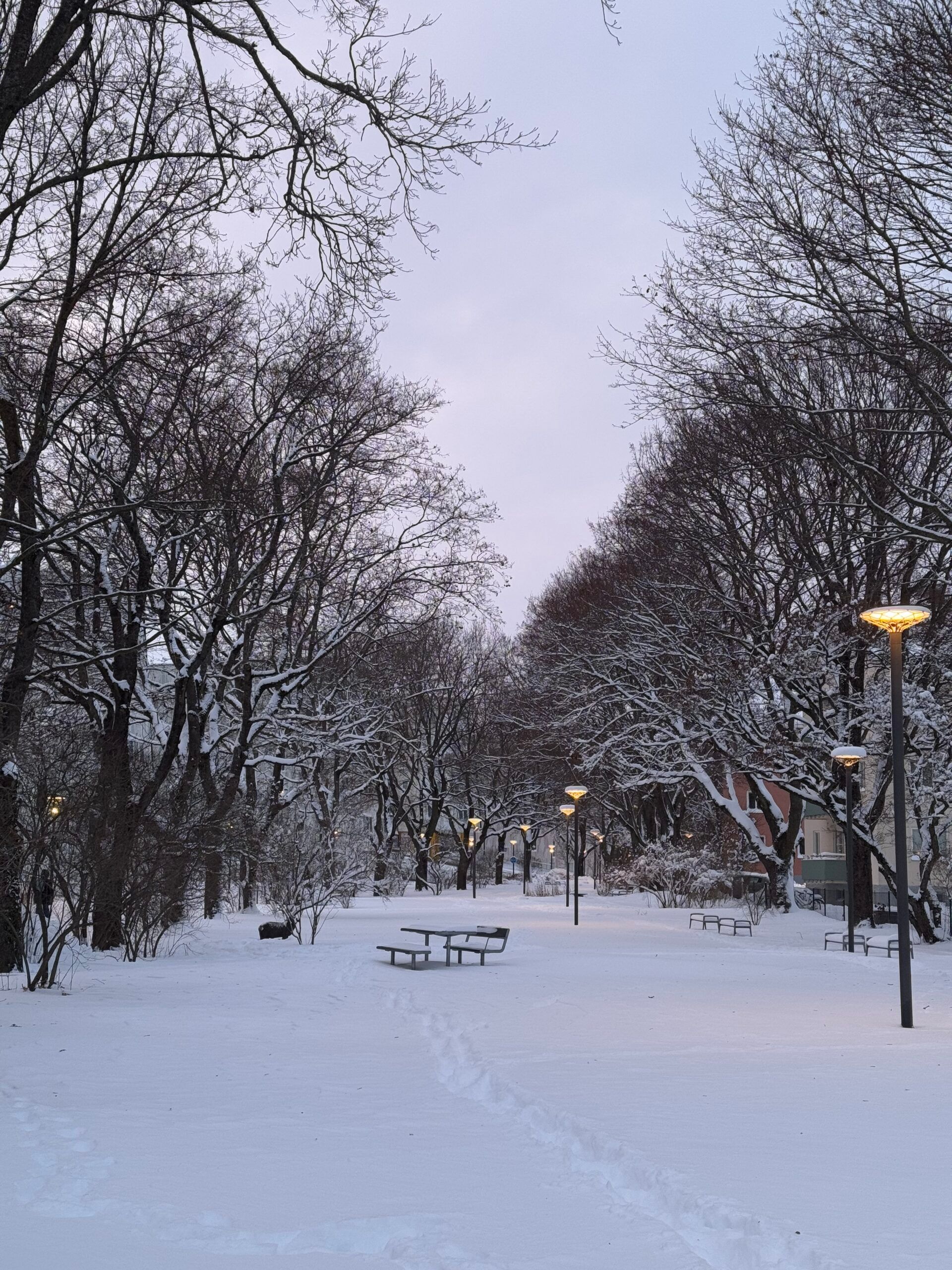
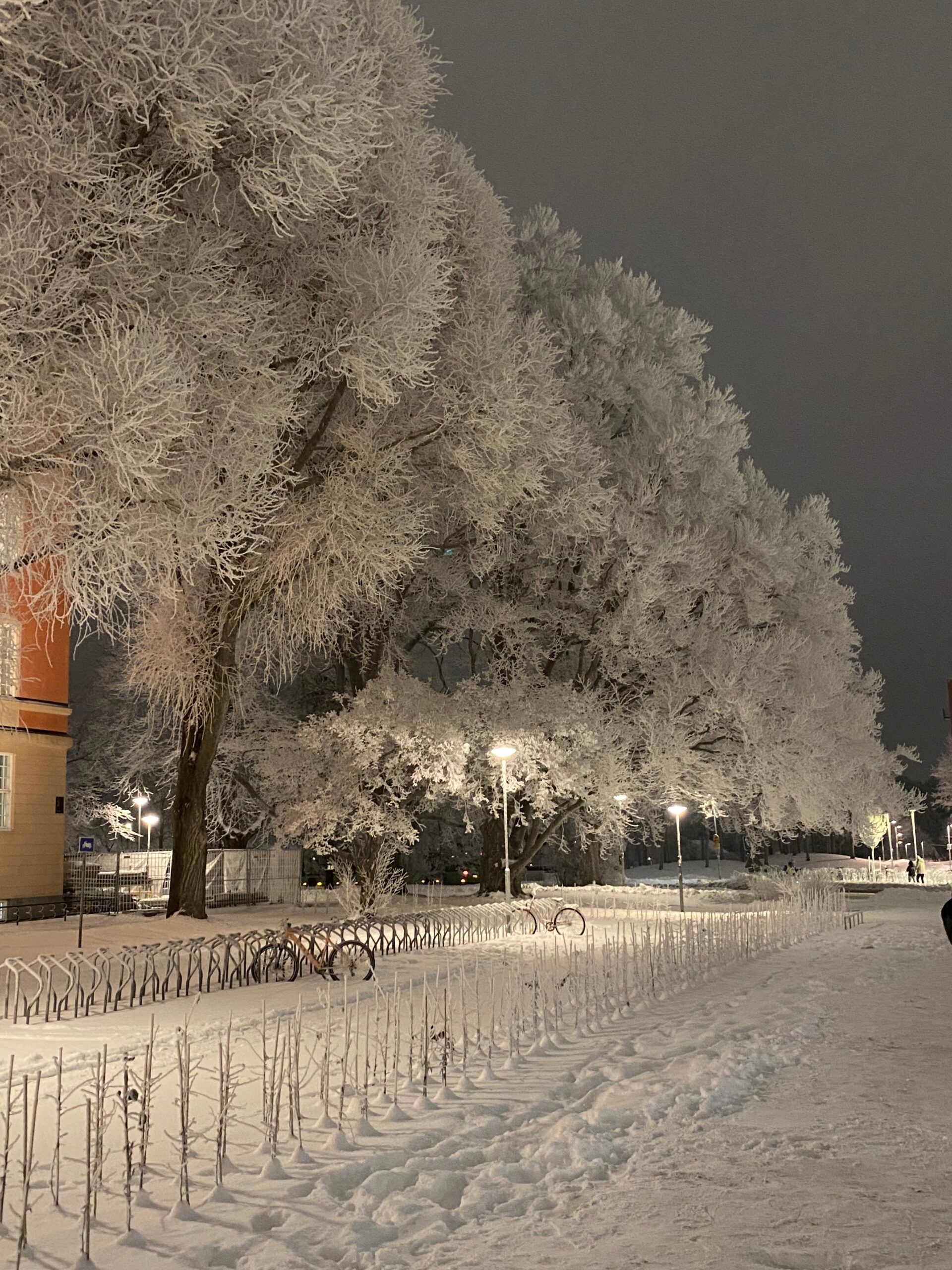
Q: I’d like to know more about Accommodation in Uppsala as a student. What choices do you have and was it difficult to find any?
Arina mentioned that there are several options when it comes to accommodation at Uppsala as a student. The first option is university accommodation, which is guaranteed for international students—so settling in when you first arrive is pretty stress-free. Then there’s accommodation through the Nations, which tends to be slightly cheaper than the university’s and comes with the added bonus of being part of the student Nation community. Another popular option is Uppsala Bostadsförmedling, a queuing system similar to others in Sweden, with a separate category specifically for student housing. If none of this work or you’re looking for something more flexible, you can turn to third-party platforms like Facebook or Blocket.se, both widely used in Sweden for everything from housing to buying second-hand bikes.
Arina shared that she initially stayed in university accommodation during her first year, which she found super convenient as an international student. Later, she upgraded to a place she found through Facebook, where she now lives with her boyfriend. While accommodation is relatively easy to secure when you first arrive, thanks to the university’s guaranteed housing, finding a long-term or more affordable upgrade usually involves joining a queue or keeping an eye on marketplaces like Facebook or Blocket.
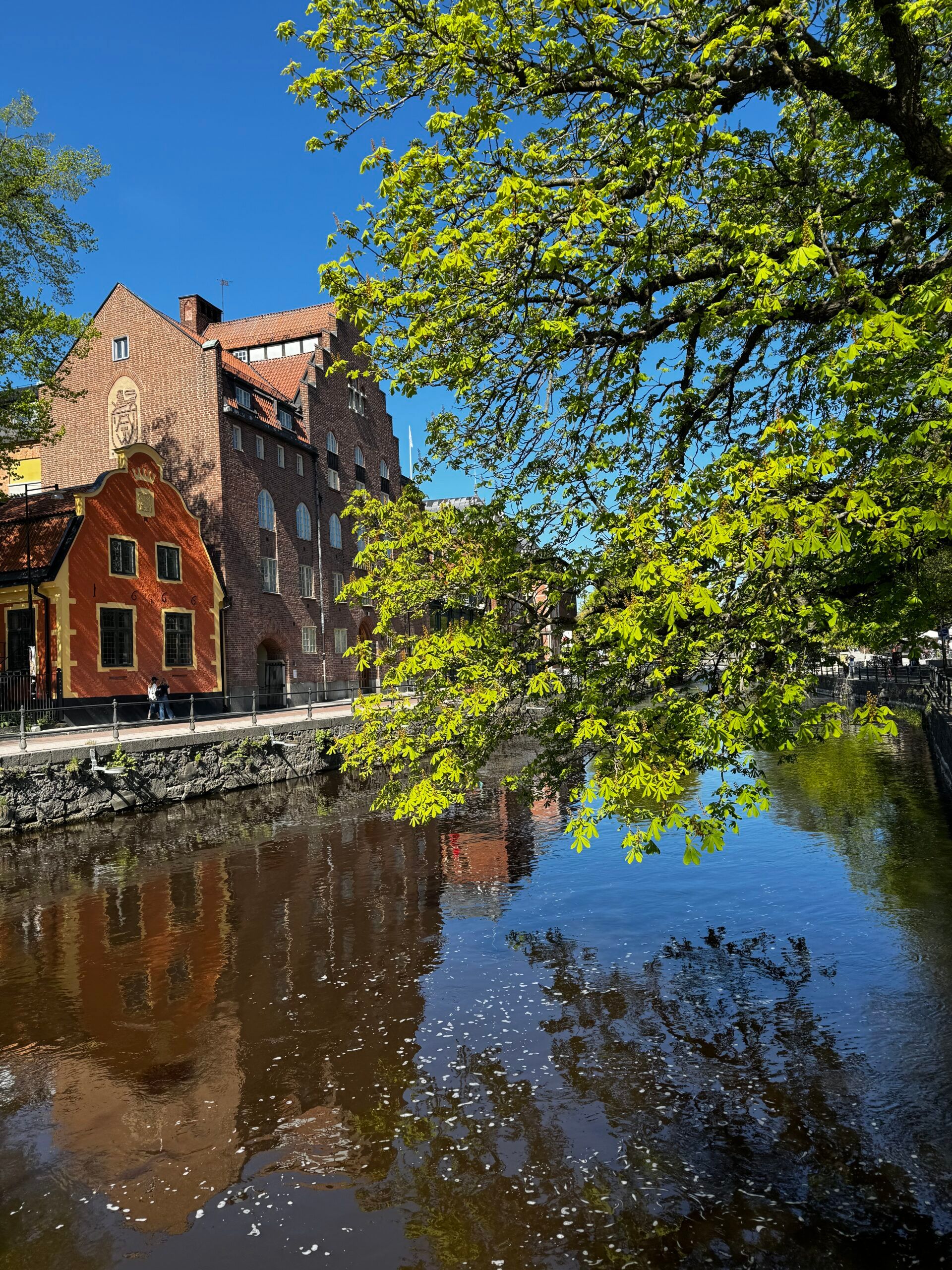
Q: One of the biggest challenges International students face in Sweden is finding a part time or full time job. Would you say the same applies to Uppsala?
“Yes. Many companies expect you to know Swedish when applying for a job or a certain position.” It seems to be a common trend around Sweden, and many students, including Dalaa and Azheimi, whom I asked the same question from in my previous blogs, say the same. One of the best ways to overcome this challenge is by learning Swedish, and SFI classes offered by kommuns across Sweden is a great way to get started. Check out my recent blog about SFI over here.
However, Arina also brought forward an important point. “It depends on what you’re studying.” She mentioned that through experiences, computer science and IT students in general often find it easier to find a job or a project group in their field when compared with student from other fields of studies like biology or medicine. This is because English is mainly used in these settings, whereas in positions where interacting with patients and outside people is needed, a good knowledge of the Swedish language will help you exponentially. Arina mentioned that one of the most common ways of students finding part time jobs in Uppsala are through Student Nations and working for them
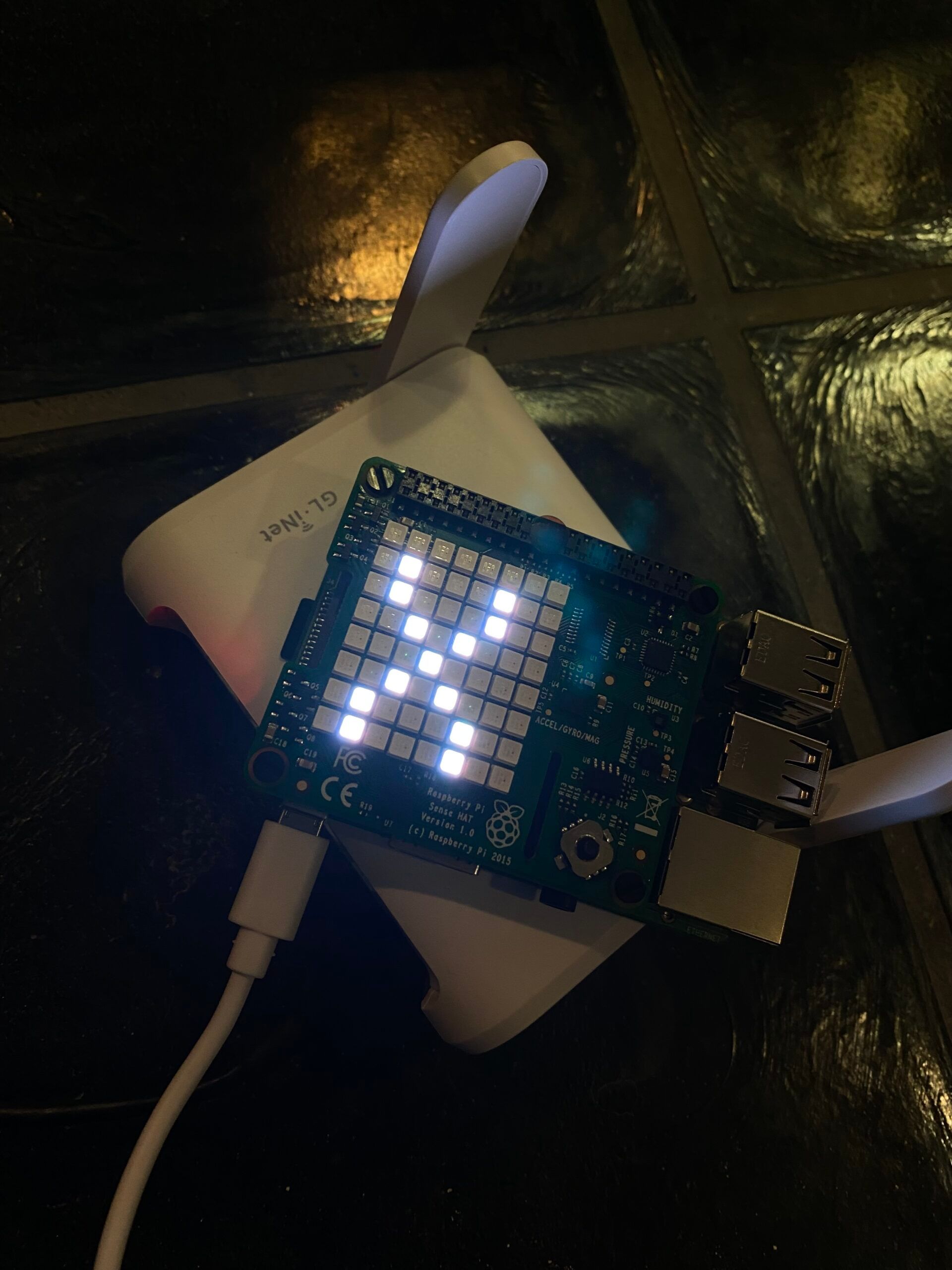
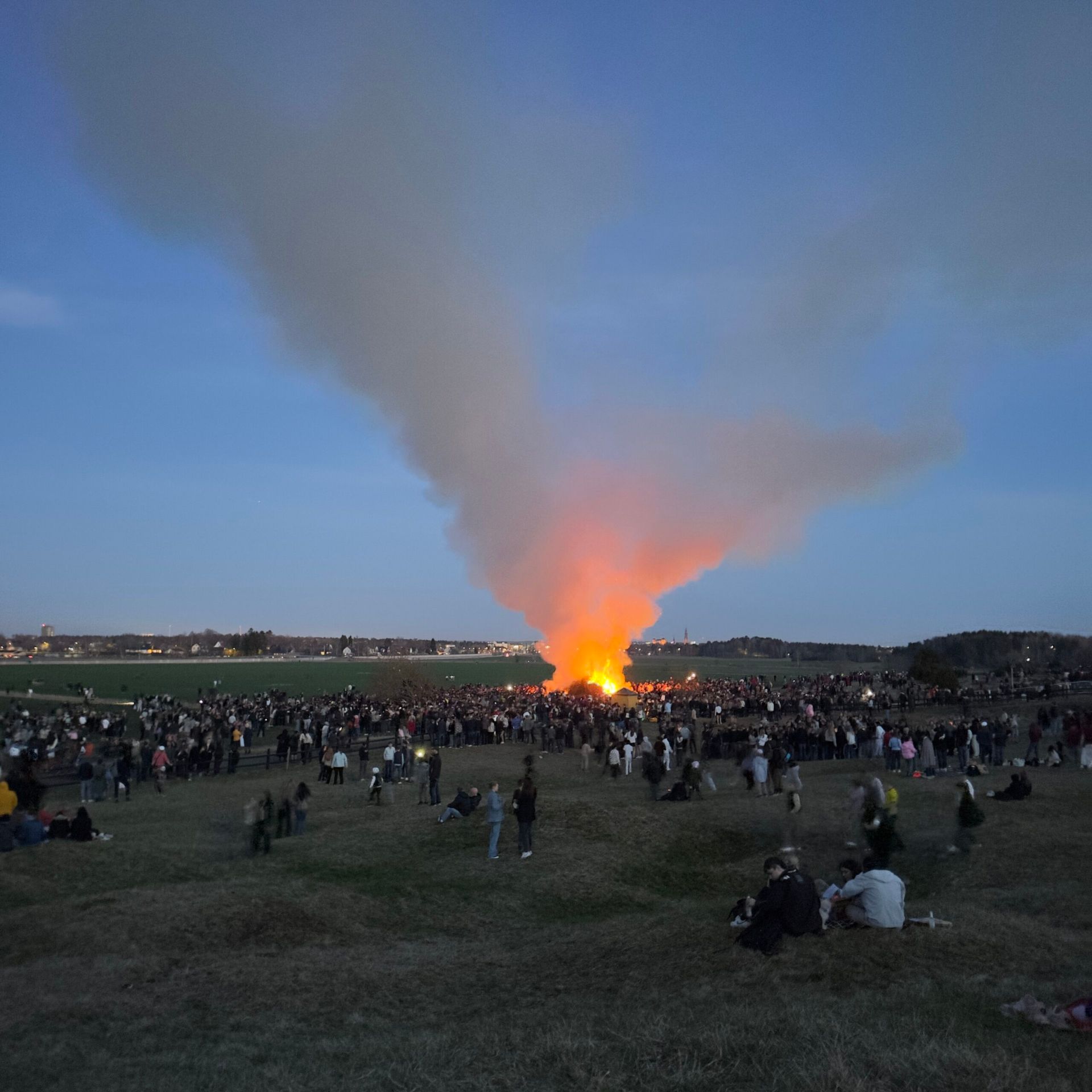
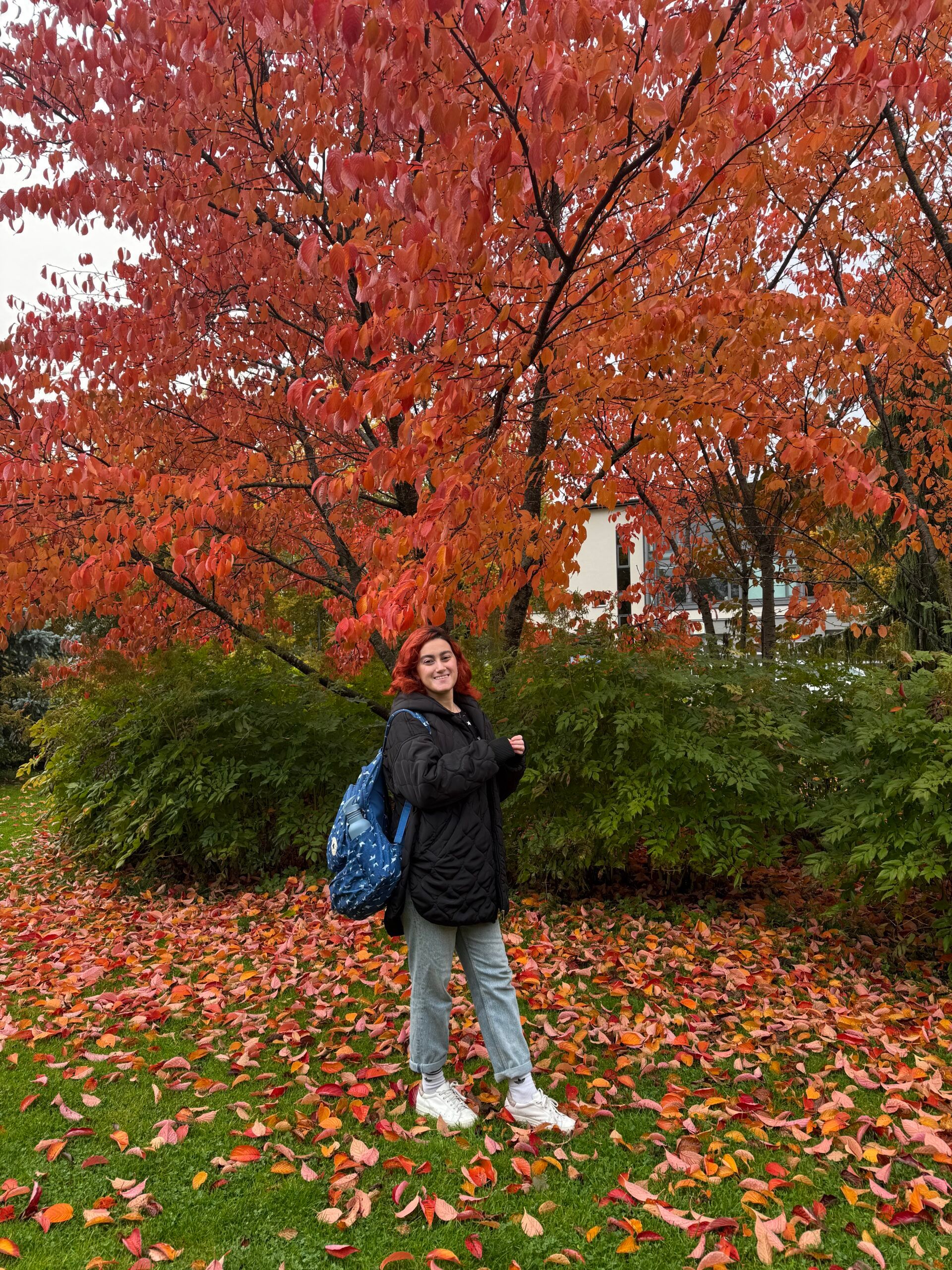
Q: Would you recommend students coming to Uppsala for studies?
“Absolutely, I think Uppsala offers an excellent experience for students, especially international ones. The city has a perfect balance, it’s neither too big nor too small, providing a great atmosphere with many events and activities by student nations. Also, there is a significant international student community, making it easy to connect with others from around the world. Uppsala is a student city and is close to the capital, Stockholm, which overall makes it a great destination for students.”
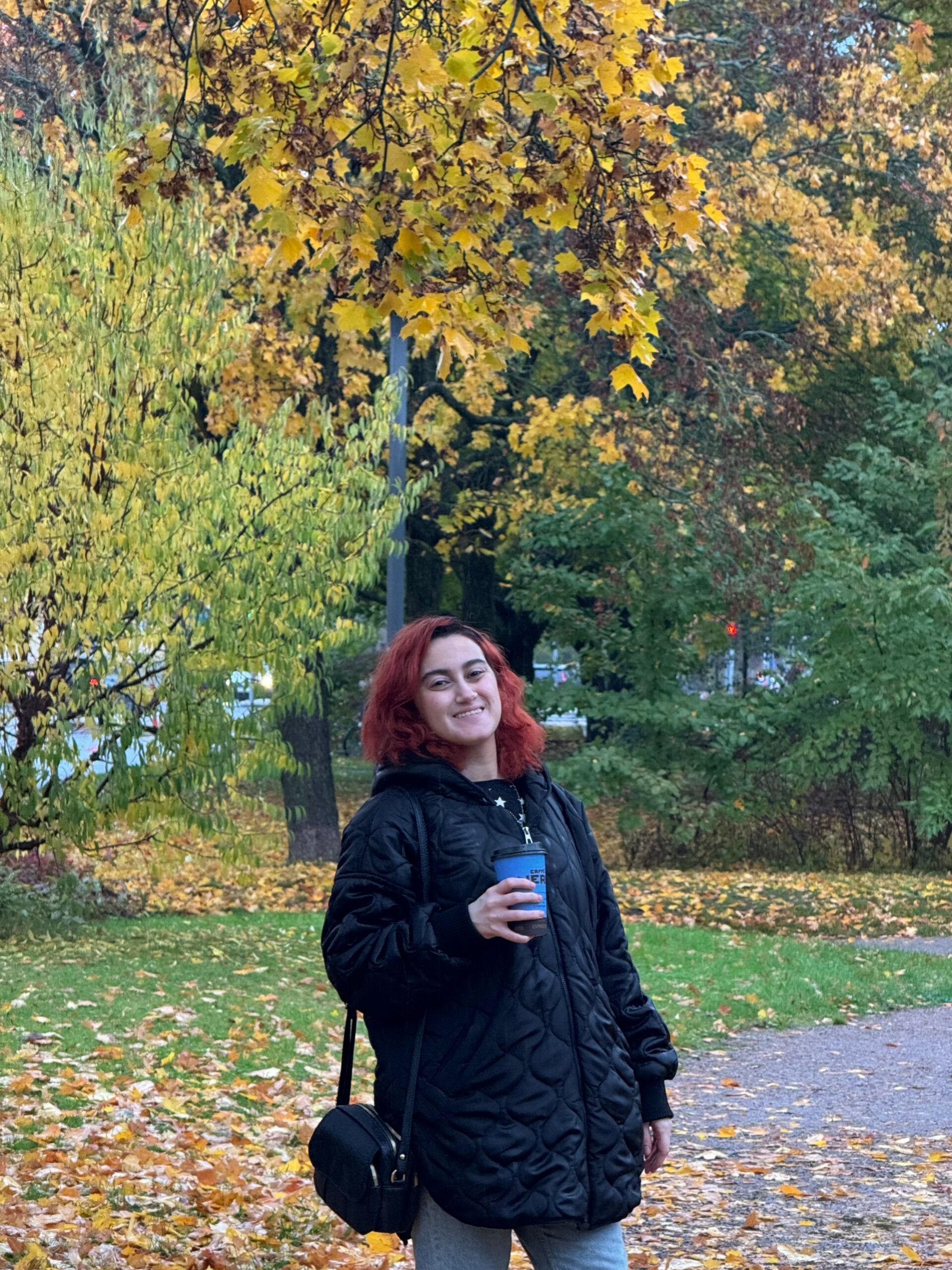
Q: What advice would you give to such students?
“I would advise students to take their time and enjoy their time at home before moving to Sweden. Spend quality moments with your family and friends, cherishing those relationships. Also, practice stepping out of your comfort zone and work on your communication skills, as they will be important when you move to Sweden. Don’t be afraid to be yourself and take advantage of the opportunities that come your way. Stay focused on your field of study, and make an effort to connect with other students and teachers. Embracing these strategies will help you adapt smoothly and make the most of your experience in Sweden.”

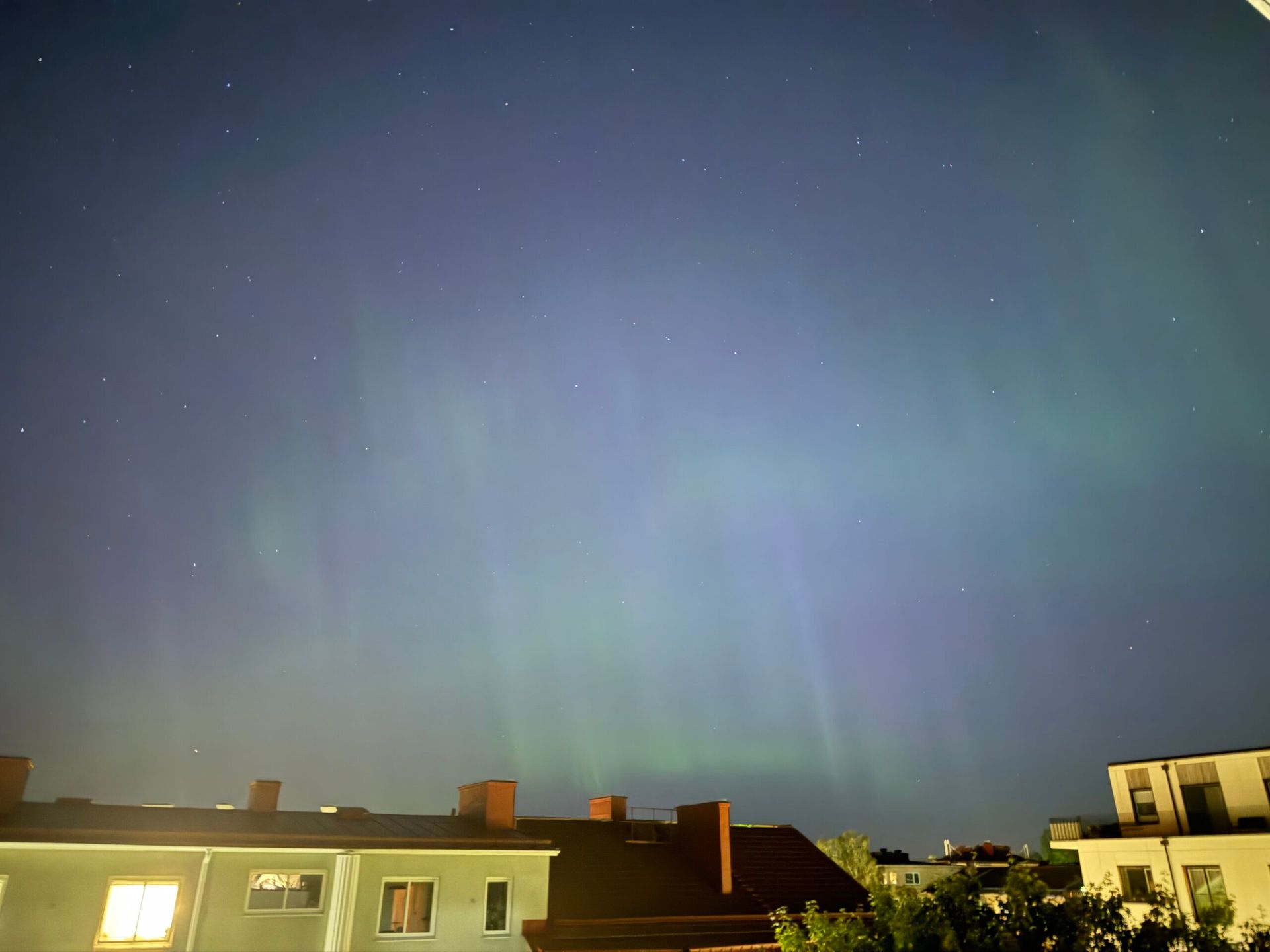
In Conclusion…
Talking to Arina about Uppsala was such a fun and insightful experience. I loved hearing her perspective—not just about the perks of living in a student city but also the little details that make Uppsala feel like home. From the charm of the Student Nations to the convenience of being so close to Stockholm, it’s easy to see why Uppsala is such a popular choice for international students. Whether you’re considering studying here or just visiting, this city has a special way of making a lasting impression—just like it did on me!
